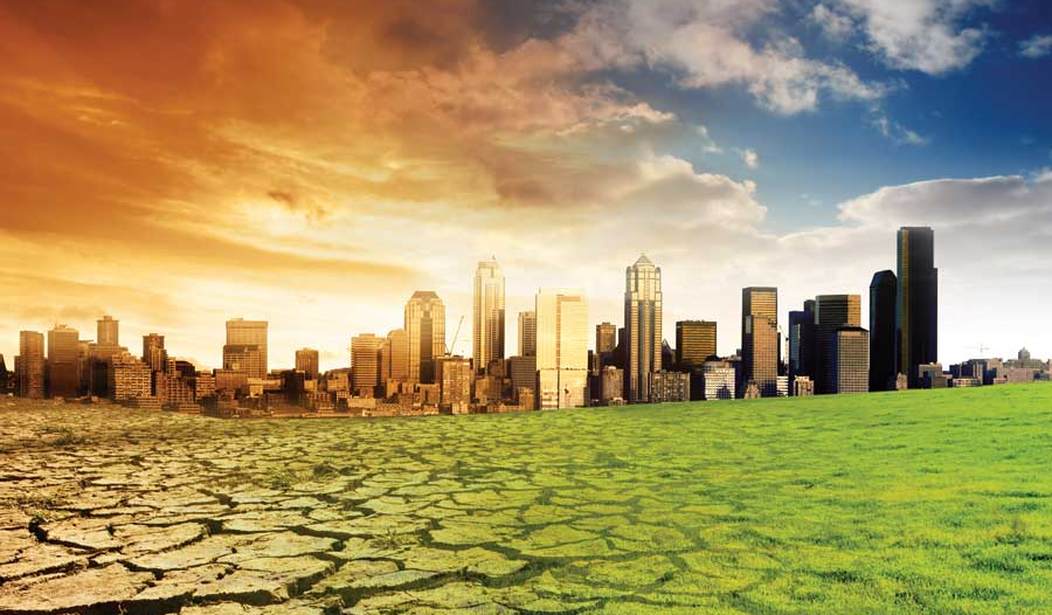WASHINGTON – Republican critics of global warming theories are attempting to determine if Environmental Protection Agency Administrator Gina McCarthy is exercising undue influence on the conclusions of an upcoming climate change report from a United Nations agency.
Four GOP members of the Senate Environment and Public Works Committee, led by Sen. David Vitter (R-La.), the panel’s ranking member, are concerned that McCarthy is attempting to skew the results of a study from the Intergovernmental Panel on Climate Change to reflect the Obama administration’s own apprehension about the purported warming phenomenon.
In a letter to McCarthy dated Nov. 4, the lawmakers cited evidence that the universe is actually in the midst of a 15-year hiatus in temperature increases, asserting that the finding discredits global warming “alarmists.” Yet new reports indicate the EPA is lobbying authors of the IPCC report to conclude that the reduction in warming is linked to heat being transferred to the deep ocean.
“It appears that the U.S. did not suggest an alternative conclusion that the models themselves were flawed,” the Republicans said.
Vitter further said the IPCC’s shortcomings represent “a great embarrassment for a significant number of researchers and politicians who have been demanding costly international and U.S. actions.”
“And it isn’t simply the climate models that have been inaccurate — multiple other claims have failed over the years,” he said. “When governments can weigh in and request alterations to a scientific analysis, the message is clear that the IPCC produces a political document, not a scientific one. Such actions exacerbate the already declining reputation of the IPCC.”
The letter was signed by Vitter, Sen. Jeff Sessions (R-Ala.), Sen. Jim Inhofe (R-Okla.) and Sen. John Barasso (R-Wyo.).
The Intergovernmental Panel on Climate Change is considered the leading international body for assessing climate change. It was established by the United Nations Environment Program and the World Meteorological Organization in 1988 to provide a clear scientific view on the current state of climate change and its potential environmental and socioeconomic impacts. The group shared the Nobel Peace Prize for its efforts, along with former Vice President Al Gore, in 2007.
In March, the IPCC is scheduled to release its latest climate assessment. A 20-page summary directed at international policy makers, leaked to an environmental blog in September, indicates the panel will conclude that global warming poses a threat to the worldwide food supply, predicting a 2 percent decrease per decade in the production of crops like corn, wheat and rice, considered dietary staples.
Such a decline has the potential to be particularly serious since the demand for foodstuffs is expected to increase 14 percent per decade as the world’s population exceeds 9 billion by 2050.
The leaked document is not final and will undergo several revisions before its March release. But global warming critics, like Vitter, already are jumping on it, maintaining that the findings can’t jibe with various studies indicating the globe has not warmed up over the past 15 years.
Another IPCC draft, leaked to the Associated Press in June, determined that the rate of warming between 1998 and 2012 was about half the average rate since 1951. But the globe is still heating up, according to the draft, which cited natural variability within the climate system, the cooling effects from volcanic eruptions and a downward phase in solar activity as reasons for the slowdown.
But the Associated Press also found that several governments – including the U.S. – reviewed the draft and offered recommendations on how the IPCC should address the slowdown. Germany maintained references to a warming slowdown should be deleted, noting that a 10- to 15-year timespan could be an aberration in the context of climate change, which is measured over decades and centuries.
The U.S. also weighed in, asserting that the study’s authors embrace another theory — that the reduction in warming is linked to more heat being transferred to the deep ocean.
Vitter said the intrusions “renew concerns that the IPCC is engaged in a political, not scientific, process.”
“With the benefit of decades of actual temperature data to evaluate, the climate forecasting models used by the IPCC and other climate alarmists over the last twenty years have now been shown to have over-predicted the extent to which the planet’s temperatures would increase,” Vitter said. “The fact that these models overestimate the extent of global temperature increases since 1998 has been recognized in many publications, including the scientific journal Nature.”
The 15-year period without measurable warming occurred at a time of record-breaking greenhouse gas emissions, Vitter noted.
“These facts are deeply disappointing to those who have been demanding immediate and costly international and U.S. actions on the basis of these previous IPCC predictions,” he said.









Join the conversation as a VIP Member